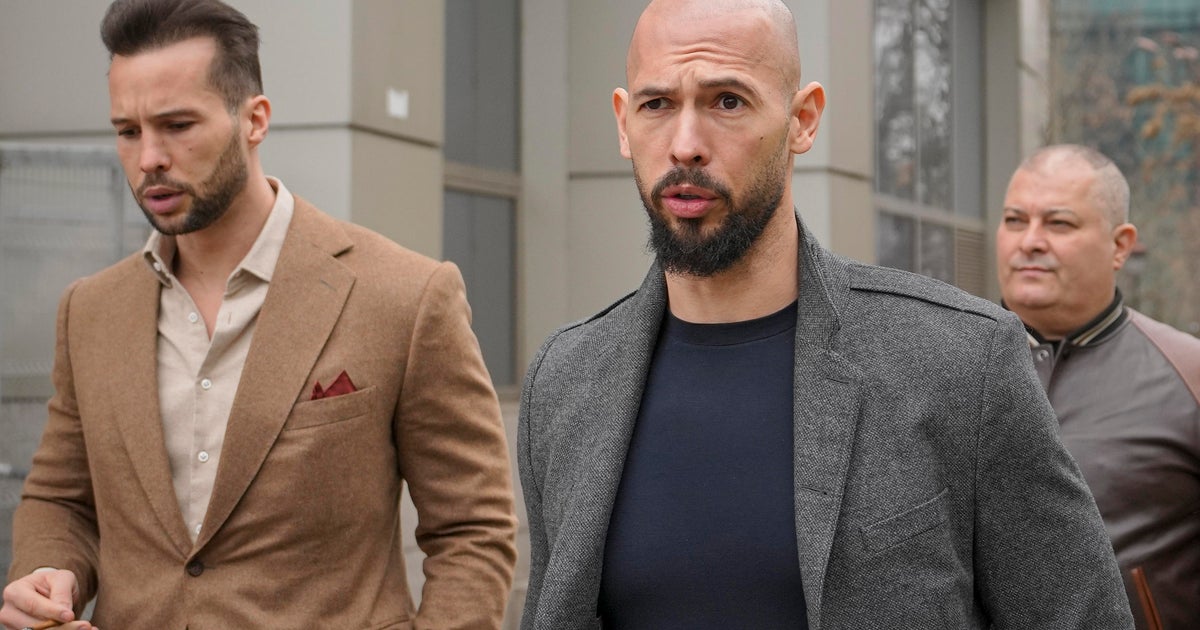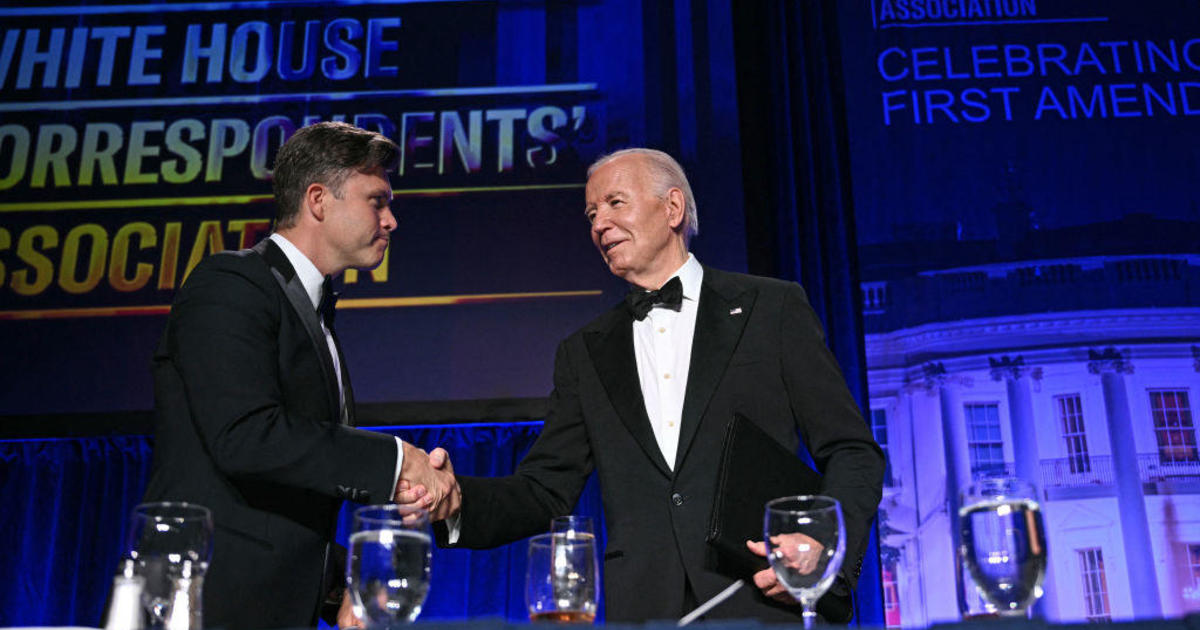Justice Neil Gorsuch is not pleased with judges setting nationwide policy. But how common is it?
Washington — When the Supreme Court heard arguments in two high-stakes, separate cases last month, Justice Neil Gorsuch raised concerns about how both disputes arrived at the court.
The cases — one involving the Biden administration's communications with social media companies and the other, the accessibility of a commonly used abortion pill — landed before the justices after federal district courts issued nationwide orders that blocked federal agencies from taking certain actions.
In the social media case, a Louisiana judge barred certain White House and administration officials from communicating with social media companies. In the abortion case, a Texas judge suspended the Food and Drug Administration's 2000 approval of the drug mifepristone — it was later reversed by a federal appellate court — and blocked a series of actions taken by the agency that made the drug easier to obtain.
A "rash" of universal injunctions
Known as nationwide or universal injunctions, these far-reaching orders bar the government from enforcing the policy at issue against anyone, anywhere in the country, and extend beyond the relief necessary to protect the plaintiffs who brought the lawsuits. And they appeared to trouble Gorsuch, who lamented there has been a "rash" of them lately.
"This case seems like a prime example of turning what could be a small lawsuit into a nationwide legislative assembly on an FDA rule or any other federal government action," he said.
Gorsuch's observations were hardly new — he expressed dismay about these injunctions in a 2019 concurring opinion — and he's not the only justice to question the soundness of these broad orders. But Gorsuch's refrains reflect the uptick in nationwide injunctions imposed by district court judges over the past few years in response to court fights over hot-button policies.
"Rather than having what you might think of as a functional judicial process where if you do have important, unsettled controversial issues, the courts can give it appropriate time and consideration, you have everybody's rights throughout the nation being flipped on and off like a lightswitch," said Michael Morley, a law professor at Florida State University who has written about nationwide injunctions.
A study published Wednesday in the Harvard Law Review looked at the number of these injunctions issued since 1963, and found they spiked in the four years former President Donald Trump was in office.
Building on a dataset from the Justice Department, researchers identified at least 127 nationwide injunctions issued from 1963 through 2023. Of those, 96 have been entered since 2001, and more than half, 64, blocked the Trump administration from enforcing or implementing its policies.
But it's not just Republican presidents whose policies are derailed by lower court judges in early stages of litigation.
Federal judges issued 14 nationwide injunctions against the Biden administration's policies through the end of his third year in office, according to the study in the Harvard Law Review, while 12 were entered against initiatives rolled out by former President Barack Obama. During former President George W. Bush's two terms, six nationwide injunctions were issued.
"Extreme forum shopping"
Morley said a single judge's power to enter a nationwide injunction incentivizes "extreme forum shopping," in which plaintiffs strategically bring their case in a specific court before a judge who will be most favorable to their arguments.
"There are outlier judges on all sides," he said. "You can go to that outlier judge and are systematically having the most controversial, cutting-edge, hot-button constitutional issues being settled and resolved by the ideological outliers rather than a more representative cross section of the judiciary."
In fact, the examination of nationwide injunctions published in the Harvard Law Review found that 92% were entered by judges appointed by Democratic presidents during the Trump administration. For the Biden administration, that portion grew to 100% imposed by judges named to the federal bench by Republican presidents.
"If you see that kind of pattern, it cannot help but call the judiciary into disrepute," said Nicholas Bagley, a law professor at the University of Michigan. "It doesn't look like they're applying the law in a clear way. It will erode the judiciary's legitimacy, no question about it."
Bagley, who testified before the Senate Judiciary Committee about these injunctions in 2020, pointed to one key factor behind their rise: Politics.
Courts have over the past few years become the arena for hashing out high-profile political disputes, as congressional gridlock puts pressure on the president to take executive action to implement his policy agenda, Bagley said.
When presidents try to act unilaterally in "unusual or aggressive ways," he continued, "there's a ripe opportunity for a lawsuit, and if you're bringing one of these lawsuits, you're going to do your damndest to bring it in front of a friendly forum."
A judge who is more receptive to the challengers' arguments, he said, may come to see a nationwide remedy as the more appropriate means of reining in a president.
"It's a combination of a bunch of factors coming together: congressional sclerosis, presidential adventurism and judicial excessiveness," Bagley said.
Fight over the abortion pill
In the court fight over the abortion pill, U.S. District Judge Matthew Kacsmaryk's sweeping order would've reinstated more stringent rules for mifepristone's use for all seeking a medication abortion by limiting the providers who could prescribe it, requiring it to be taken earlier in a pregnancy, and rolling back a FDA rule allowing it be dispensed by mail.
Though that portion of his order was upheld by the U.S. Court of Appeals for the 5th Circuit, the Supreme Court intervened and maintained the FDA's relaxed rules for mifepristone's availability while it weighs the legality of those actions and whether the anti-abortion rights doctors who brought the case had the legal right to sue.
The scope of Kacsmaryk's relief prompted questioning from Gorsuch and Justice Ketanji Brown Jackson during arguments before the Supreme Court last month. A decision is expected by the end of June.
"What they're asking for here is that in order to prevent them from possibly ever having to do these kinds of procedures, everyone else should be prevented from getting access to this medication," Jackson said of the physicians and medical associations.
She said there was a "significant mismatch" between the injury claimed by the anti-abortion physicians and the remedy they're seeking from the Supreme Court — the reinstatement of more stringent rules for mifepristone's use for all.
Limiting government pressure on social media companies
In the other case, involving the Biden administration's pressure on social media companies to remove content it believed spread misinformation, U.S. District Judge Terry Doughty restricted top government officials' communications with an array of platforms, not just those used by a group of social media users who sued and claimed the Biden administration was unlawfully coercing the companies to take down content it believed spread misinformation.
During arguments in that case, Gorsuch said there has been an "epidemic" of these injunctions in recent years.
"Your clients are your clients. They're the only ones complaining. And it's their case. It's their controversy," he told the lawyer arguing for the social media users and two states who filed the lawsuit. "And, normally, our remedies are tailored to those who are actually complaining before us and not to those who aren't."
In both instances, the cases made their way up to the Supreme Court quickly, which Bagley said stymies efforts to allow other courts to weigh in on thorny legal questions.
"They create races to higher courts and to the Supreme Court to resolve these cases at a threshold stage when the facts and law have not been developed," he said. "They throw a lot of sand in the gears of government operations by allowing courts to put a stop to any government initiative they want to, and that authority is delegated effectively to every judge. That's no way to run a railroad."
In addition to Gorsuch and Jackson, Justice Clarence Thomas has also spoken out against nationwide injunctions, including in a 2018 concurring opinion in a case involving Trump's travel ban.
There, Thomas noted that district courts in Hawaii and Maryland entered preliminary injunctions that barred the Trump administration from enforcing the ban, and said he was skeptical they have the authority to do so.
"If their popularity continues, this court must address their legality," he said.
But the Supreme Court has not done so, though Morley said there have been few cases where the justices could squarely address the issue.
"To a certain extent, the stars have to align a little bit," he said.
What can Congress do?
Congress could also act, and two bills have been introduced by Democrats in the House and Senate that would address the practice of a single judge effectively setting policy for the nation. One, introduced by Sen. Mazie Hirono of Hawaii, would require cases that seek broad injunctive relief against enforcement of a federal law to be heard by the federal district court in Washington, D.C.
The other, spearheaded by Rep. Mikie Sherrill of New Jersey, would require civil suits seeking nationwide orders to be filed in district courts with at least two active judges.
But politics would permeate any efforts to clear either of those measures.
"If you're a member of Congress, if the president is of your party, you're going to hate these orders. They need to be banned because you don't want a single district judge getting in the way of your president," Morley said. "But if the president is of the other party, these are going to look better."



